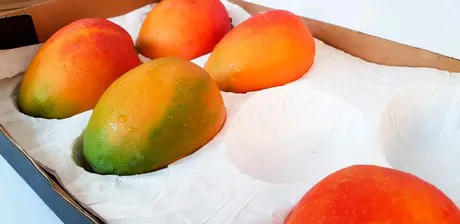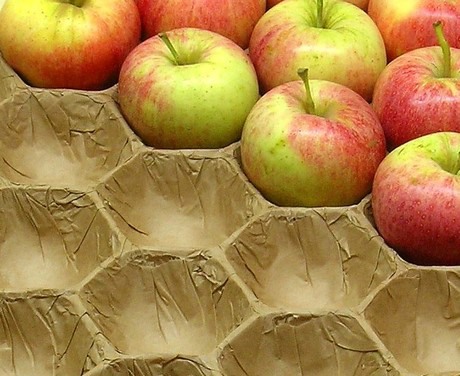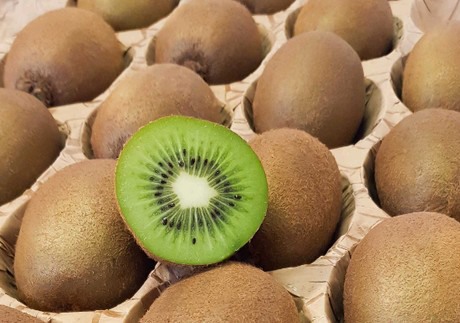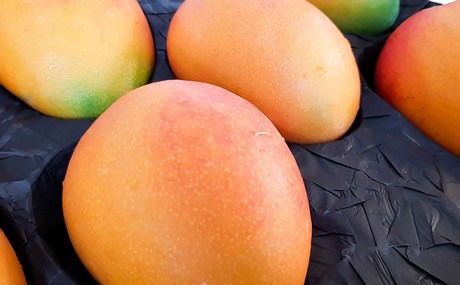The packaging industry is faced with a major challenge today, the desire of retailers and consumers to go from “all plastic” to “zero plastic”. The eco-friendly and recyclable packaging companies have therefore had to adapt rapidly to this sudden change. Naturalvi, which used to be a family structure based on an 8h production model, is now a company whose 3x8 production also operates on Saturdays.
 Photo credit: Naturalvi
Photo credit: Naturalvi
“The perception of plastic packaging in Europe has changed”
“It is the refusal by Asian countries to become the world’s recyclers which triggered this growing demand for more environmentally-friendly packaging. China has shut down its reprocessing plants. Malaysia, Indonesia and Africa are overwhelmed by garbage and start to refuse to process any longer. We are realizing that we generate way too much waste and that it is high time to rethink the system. Because the problem also comes from a lack of education of the consumer, who seeks plastic packaging because it is marketed as hygienic, better and modern,” explains Angélica Velasco, communications manager at Naturalvi.
The demand for paper packaging has increased considerably, partly due to a change in the perception of plastic in Europe, but also to the legislation of some countries which imposes taxes on plastic packaging as of this year. As a result, supermarkets now require alternative packaging, easily recyclable, or even compostable.
If some clients felt forced to place their first order, they adopted the product as soon as they tried it. “Our clients realize that the walls of our kraft paper alveola are much higher, which means that the fruits do not touch and their shelf lives are much longer. By the time they place their second order, their motivation has shifted,” explains Angélica.
 Photo credit: Naturalvi
Photo credit: Naturalvi
“We have invested in our production tool to meet this growing demand”
Naturalvi offers more than 15,000 items to its clientele. “We cannot store anything and we work mainly on orders. The pace is intense and deadlines have increased to 6-7 weeks of production. We are aware that our workflow is tense because there are perishable goods at the end of the line. Therefore, we communicate a lot with our clients. This way, they can anticipate their needs as much as possible, because we cannot exceed the production capacity of our machines. We are currently investing in a new production line. This big project forces us to stop the creation of new items, but we want to give the total and absolute priority to increasing our production capacity and reducing our delivery times,” explains Angélica.
An important demand for export
“For us, the big markets are Belgium, the Netherlands, France, Spain and Italy, which are important fruit and vegetable producing countries in Europe, but the number of countries to which we export keeps growing. We have clients in Southeast Asia, South America, North America, South Africa, Israel, and even in Australia and New Zealand.”
“The Naturalvi alveola used to be a niche product, targeting premium fruit producers. Now, we sell a lot of alveolar packaging which are not printed, so the farmers, distributors and fruit and vegetable retailers can export to Europe,” explains Angélica.
 Photo credit: Naturalvi
Photo credit: Naturalvi
“There is a risk of overexploiting forests”
“At Naturalvi, we always use virgin instead of recycled kraft paper, because according to European law, it is sometimes ok not to declare the composition. Our suppliers are certified FSC and not FSC mix, in order to be sure that our paper comes from well-managed forests where a new tree is planted to replace every cut tree. Also, we work with color suppliers who guarantee that their inks are water-based, safe and non-toxic.”
The company decided to meet very high quality standards regardless of the pressure of the demand. Angélica fears that this sudden turn could lead to excesses. “All these changes require time. Large retailers and consumers want to change overnight but it will be very difficult because, no matter the type of product, changes of this magnitude require huge efforts and large investments in human and material resources. Evolution of this type takes time and cannot happen overnight. We will grow and increase our production capacity, create jobs and continue to offer a quality product, ‘made in France’ and sold around the globe.”
“We try to adapt rapidly to the increasing demand but I think that it would have been preferable for all the actors of the sector if this change could take place in stages. We must take into account the risk of overexploitation of the forests to produce paper, as well as cardboard and wooden crates. I believe that the real danger lies in single-use plastic rather than the plastic that can be reused,” concludes Angélica.
 Photo credit: Naturalvi
Photo credit: Naturalvi
For more information:
Angelica Velasco
Naturalvi
Phone: +33 (0) 3 88 07 27 83
[email protected]
www.naturalvi.com
